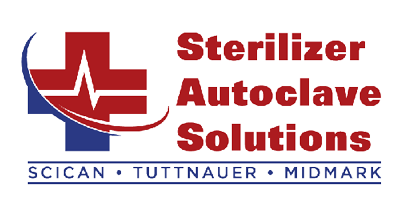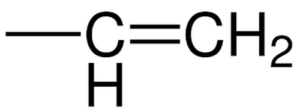Nitrile, Latex, or Vinyl – Which Glove Is Best For Me
When it comes to protecting yourself and your patients from infection, there are many factors that must be considered. Personal protection equipment as a whole can come in many forms for many different needs. But essentially it comes in the different forms in which you physically shield your body from anything getting in or out. And this can be very useful to make sure that anything harmful outside of this shield you create can get in and hurt you. But it also protects you from possibly contaminating something or compromising someone. In this article, we’d like to talk exam gloves. More specifically, the main materials in which most gloves are made.
You need to know what type of material is used for the exam glove so you can determine if your patients may have an allergic reaction. Examine gloves come in three types: nitrile, latex, and vinyl. Each offers its own benefits, but one will stand out above the rest as being the best option for most medical professionals.
Nitrile

When it comes to medical gloves, nitrile is the best choice for most people. Nitrile gloves are synthetic rubber and are reusable, making them a practical choice for anyone who uses medical gloves regularly. Nitrile is also ideal for those with latex allergies, as it’s made from a different material than latex.
Nitrile gloves are highly chemical resistant. More resistant than nay other kind of glove material. They can resist potent chemotherapy chemicals as well. They’re 3-4 times more puncture resistant than most others. They’re powder-free for easy, no nonsense removal. And use your body heat to form fit to your hands. They’re even waterproof and have a higher shelf life to boot.
Nitrile costs less than latex or vinyl gloves, so you’ll save money over time by using them instead of other types of medical exam gloves.
Latex
Latex gloves are the most common glove in the medical field. They’re durable and strong, and they provide a good amount of dexterity. Their high elasticity allows them to stretch without losing their shape or breaking down, making latex gloves an excellent choice for anyone who needs to perform tasks that require a lot of movement with their hands.
However, despite their versatility, there are some situations where latex gloves aren’t ideal: specifically, if you have an allergy or sensitivity to latex proteins (more on this later). In these cases, we recommend looking into nitrile gloves as an alternative option — they offer similar durability but don’t contain any traces of rubber protein that could trigger an allergic reaction.
Vinyl
Vinyl is a very popular glove for medical professionals because it’s durable, easy to clean and doesn’t cause allergies. It can be used for long periods of time without breaking down. Vinyl gloves are a good option if you have latex allergies, as they’re made from synthetic rubber that doesn’t contain natural rubber products like latex does.
Vinyl is also an anti-static material. Meaning these gloves can keep you out of trouble when handling static-prone materials. And these gloves’ versatility reaches beyond the medical field. They can be used for things like home cleaning and even food preparation. They’re resistant to common chemicals in non-hazardous environments. ANd not to mention they’re cheaper than both vinyl and latex.
The major downside of vinyl gloves is that they’re not as flexible as nitrile, so some people find them harder to work with when performing intricate procedures or using small instruments like forceps or needles. They also don’t provide much protection against punctures, unlike other types of medical exam gloves like nitrile or latex options which tend to be thicker than vinyl options and thus better at preventing needle pricks during medical examinations (although these cases are rare).
Final Thoughts
Medical exam gloves are a necessity for any physician or dentist. They provide protection against pathogens of may kinds, blood-borne and the like. As well as other potentially harmful substances found in our patients’ bodies. They’re also crucial when performing a physical exam on someone who is ill or injured. Medical exam gloves can be made out of many different materials, but each material provides its own unique benefits and drawbacks, so it’s important to know which one is right for your needs before making an investment into new gloves.
As always if you have any questions about this process or anything else please feel free to contact us and take advantage of our “FREE TECH SUPPORT.”
We also offer FREE VIRTUAL TECH SUPPORT to “See and Talk” with a “Real Time Live Technician” for any problems you may be in need of help with.
You can also use our “FREE MAINTENANCE PROGRAM”. Take the guesswork and worrying about what unit is due for maintenance and which maintenance cycle it is time for. We will keep track of all your autoclaves and let you know when it’s time for anything.



